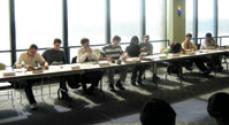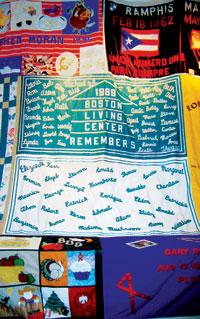Portney’s Complaint

Portney’s Complaint
December 12, 2006
Much as I love nice weather, and hate the freezing, bitter cold winters that usually make their way through New England this time of year, I can’t help but feel a little confused about the temperature lately. Isn’t this December? Aren’t we supposed to be having a winter? Isn’t this New England, a place that boasts (and I use that term subjectively) some of the most snowfall each year in the country?
In 2004-05, we experienced one of the worst winters in years. The snow kept falling, and since the air was too cold for any of it to melt, it continued to pile up. My driveway was encased in a six foot, solid wall of hard snow. That summer, hurricane Katrina swept through the South, and we were all operating under the belief that this would cause a horrific winter for the Northeast. Surprisingly, we got very little snow last year. It only snowed twice and barely anything accumulated. What happened?
As it turns out, all regions are experiencing oddities in their weather due to environmental changes that are the results of global warming. The proportion of hurricanes worldwide that reach a category four or five has risen by over 15% in the last twenty-odd years. In April this year, Greg Holland, director of the Mesoscale and Microscale Meteorology Division at the National Center or Atmospheric Research in Boulder, Colorado, said that the hurricanes we have been seeing [like Katrina] are the direct result of climate change, and that the wind and warmer water conditions which fuel these storms are due to greenhouse gases. Holland said, “There seems to be no other conclusion you can logically draw. The large bulk of the scientific community say what we are seeing now is linked directly to greenhouse gases.”
Hurricanes heavily affect the South, but what about our warm winter? Scientists have concluded that greenhouse gases are the main reason for warmer winters in the Northeast. Greenhouse gases (which are the results of burning fuel and oil) increase the strength of polar winds, which regulate the winter weather in the northern hemisphere. What does it mean for us? The temperature continues to reach record highs in winter each year, and the cold weather takes longer and longer to settle in. Other than the obvious negative effects on popular New England winter sports like skiing and snowboarding, the ecosystem itself will be suffering. The moths and bugs that are usually gone for the season are swarming all over. This will affect their breeding cycle, which will put a major damper on next summer.
The effects of global warming due to greenhouse gases can no longer be debated or argued- it is a fact. The debate now lies in who is responsible. Was it inevitable? Are humans solely responsible? Can anything be done to reverse or slow the process? There are some important steps to take in order for us to save our home- planet earth.
Step one- stop living in denial. The fact is, global warming is effectively destroying our planet, and it’s happening at a faster rate than we previously believed. Regardless of whether or not humans are responsible (and they are) it falls upon us to do something about it. There are simple ways to start improving our environmental situation. Don’t feel like it’s an impossible, insurmountable task that isn’t even worth attempting.
Step two- change your way of thinking. Just having a different outlook on environmental issues will help you pass those types of values on to future generations. It is up to us to start saving the planet, but it is up to our children to continue doing so.
Step three- make an effort! Maybe try taking public transportation more often, or carpool to save gas. As long as we’re having this warm winter, walk. There are many small, mildly effortful things you can do to help slow the effects of global warming.
I believe that the first step is the most important. Without it, neither of the others will be attainable. So please admit, to your friends, family, and yourself, that our planet is in danger, and we are the only beings on the earth who can do something to save it.




























































